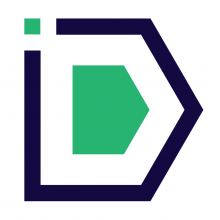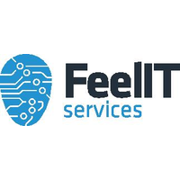
There are 28 Companies in France
that provide Chatbot Development Services!
France's IT services market is the sixth-largest in the world. It currently occupies around 4.4% of the global IT services market. The market value of IT services accounts for around 45.7% of the overall market of IT. The IT services market is expected to grow at a CAGR of around 16.45% from 2025 - 2030, potentially reaching $81.21 billion by 2030.
Discover Top IT Companies in France specialized in Chatbot Development and other related services. Find the best IT service providers for your projects.
Chatbot services are like smart computer programs that can chat with people just like you and me. They're used to answer questions, help with tasks, and make our online experiences smoother.
Handpicked companies • No obligation to hire • 100% risk-free
Featured Companies in France
This month, the following Chatbot Development companies managed to provide an outstanding service and support. It's worth taking a look.
Explore Top Chatbot Development Companies in France
Techgropse is a leading Mobile App and Web Development Company, dedicated to turning innovative ideas into remarkable digital solutions. 500+ Clients
Fire Bee Techno Services is an ISO-Certified Blockchain and AI Development Company In india and across the world with 13+ years of experience.
Mobirevo is a Leading custom software development agency focused on web, mobile app development & saas application development.
Devsoul Technologies Pvt Ltd is a dynamic software development company specializing in comprehensive digital solutions for clients globally.
WE ARE FEEL IT SERVICES - an IT outsourcing company from France with Headquarters in Romania, Moldova and Israel
We help brands grow online with strategy, design and performance-driven websites, delivering measurable results across Normandy and beyond.
Etixio delivers reliable offshore IT expertise through dedicated teams, custom development, and competitively priced tech support for long-term value.
Innovative IT services firm delivering cloud consulting, cybersecurity, DevOps, custom software, and managed support to modernize and scale businesses
EXEO is a multi-specialist Managed Services Cloud and Cybersecurity Provider founded in 2012.

Persistent Systems Verified Company
Rhône-Alpes, France Head office in: India
See Beyond, Rise Above
Impulse Lab is the all-in-one AI agency guiding businesses from opportunity discovery to solution deployment.
Monkhub Innovations specializes in mobile apps, blockchain, AI, AR/VR, and game development, delivering 250+ successful projects for global clients.
Bienvenue chez BraindCode, votre partenaire de choix pour toutes vos ambitions digitales !
Empowering startups ans SMEs with tailor-made digital solutions (Disponible en Français)
- 1
- 2
Filter Chatbot Development Companies in France by Cities
Find the right tech company near you or from a specific city. Some of the best companies might be located in smaller cities.
Find more Chatbot Development companies around the world
TechBehemoths is the world's most advanced and user-friendly platform to match IT Companies with real clients without hustle.
The French ICT Industry: Data & Insights
France's IT services market is the sixth-largest in the world. It currently occupies around 4.4% of the global IT services market. The market value of IT services accounts for around 45.7% of the overall IT market, and is expected to grow from over $41 billion in 2016 to over $64.27 billion in 2025.
The IT services market grew at a CAGR of around 1.1% in the historic period and is predicted to grow at a CAGR of around 16.45% from 2025 - 2030. potentially reaching $81.21 billion by 2030.
Why Should You Work With a French IT Company?
France’s biggest advantage in the region is the growing number of young professionals who are enrolled in the IT industry. In Western Europe, France has the lowest outsourcing rate and is relying on its own professionals mainly to provide the entire range of IT services. Along with the increasing number of human resources, the French IT infrastructure is among the leading in Europe, and having these factors combined, France has the third-largest IT sector in Europe, with a share of 16.5% in 2025.
What to Be Aware of When Working With French IT Companies
Good IT infrastructure, well-developed business culture, and skilled professionals - France has it all to continue its IT growth in the following years. So, what’s the missing puzzle that makes France the third-largest IT market in Europe and not the first?!
Basically, the cultural differences and especially linguistic rigidity make French companies less attractive. In this way, the IT industry continues to rely on Francophone and French-speaking countries, but with good progress made, especially by young companies and IT startups that have started to focus more on development and growth and less on cultural aspects.
How Reliable Are French IT Companies
The strong business culture and tradition, along with local specialties made French companies some of the most trustworthy in Europe, and in the world. Looking back at the European IT market share, France has an incontestable reputation, and it attracts all types of businesses to have IT services done there, by local professionals.
How the French IT Industry Relates to the Neighboring Countries
With Germany and the UK in the leading positions, France’s IT industry continues to grow and possibly pose a good challenge to the UK IT industry. After Brexit, a consistent number of IT companies fled from the UK and relocated to Germany, Ireland, and France, giving to their last chance to take second place in the European IT market share. In the long run, France’s IT industry has two big competitors - the UK and Spain, which share the neighboring position in the European IT ranking.
What is Chatbot Development and what are its benefits for your projects?
Chatbot services are like smart computer programs that can chat with people just like you and me. They're used to answer questions, help with tasks, and make our online experiences smoother.
More than 426 verified IT companies offer chatbot services to businesses and organizations. These companies specialize in creating and maintaining chatbots that suit different needs. Some well-known IT companies providing chatbot services include IBM, Amazon, and Microsoft.
Chatbot service providers use a mix of technologies to make chatbots work. They rely on programming languages like Python and JavaScript to build the chatbots. They also use AI and machine learning to teach chatbots how to understand and respond to people. Tools like Dialogflow, Microsoft Bot Framework, and Amazon Lex help in creating and deploying chatbots.
Chatbot services are often part of a broader set of services in the field of artificial intelligence (AI) and customer engagement. Related services include:
-
Natural Language Processing (NLP): Technologies that help chatbots understand and interpret human language better.
-
Virtual Assistants: Advanced chatbots that can perform more complex tasks and provide personalized assistance.
-
Customer Support Solutions: Integrating chatbots into customer support processes to provide quick help to customers.
-
Voice Assistants: Like Siri and Alexa, which use chatbot-like technology to answer questions and perform tasks via voice commands.
To choose the best IT company for chatbot services, consider factors such as their experience, the quality of chatbots they've built before, and whether they understand your specific needs. Look at their portfolio and ask for references. A good fit is a company that can make a chatbot that matches your goals and budget.
Chatbot service providers are needed for various projects, including:
-
Customer Support: Using chatbots to answer common customer questions and issues.
-
E-commerce: Helping customers find products and make purchases online.
-
Healthcare: Providing patients with information and appointment scheduling.
-
Finance: Assisting with banking tasks, such as checking account balances and transferring money.
-
Marketing: Engaging with website visitors and collecting leads.
-
Education: Enhancing online learning experiences with chatbot tutors and course information.






















